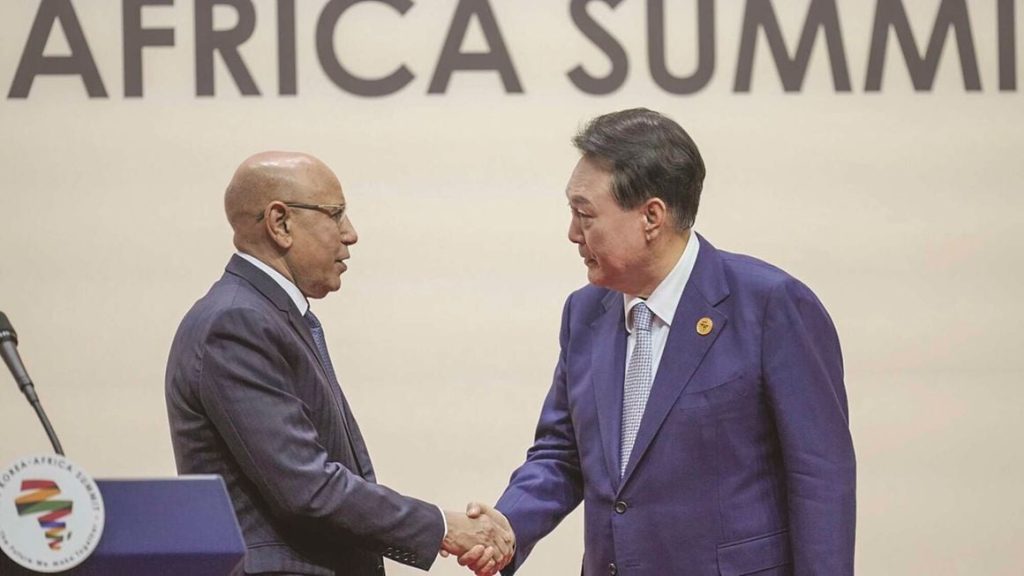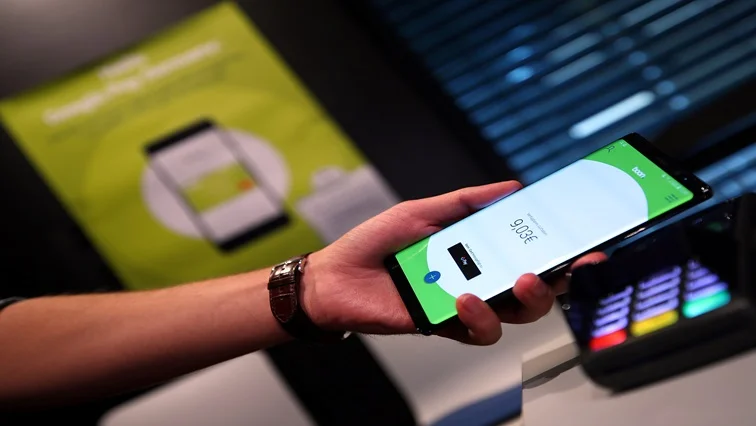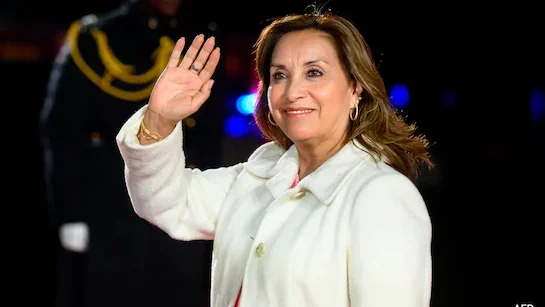At the 2024 Korea-Africa Summit held in Goyang, South Korea, President Yoon Suk Yeol and Mauritania’s President Mohamed Ould Ghazouani, representing the African Union, stood before the cameras, shaking hands and marking the beginning of what they hoped would be a new chapter in Africa-Asia cooperation.
This summit, attended by leaders and representatives from 48 African nations, was not just another diplomatic gathering—it represented South Korea’s push to secure access to Africa’s rich mineral resources, critical for the energy transition and the global shift towards green technologies.
In the joint declaration, the leaders emphasized their shared goals: ensuring a stable supply of Africa’s critical minerals to South Korea while enhancing collaboration in technology.
“We agree to launch the Korea-Africa Critical Minerals Dialogue during this summit,” said President Yoon, signaling South Korea’s ambition to solidify its foothold in the continent’s mineral-rich economies.
The goal was not just about extracting resources but also fostering investment in value addition and sustainable mining practices.
The timing of this summit was significant. Africa’s mineral wealth, including essential elements like cobalt, lithium, and rare earth metals, has become increasingly crucial in global supply chains.
With the world pivoting toward clean energy and electric vehicles, South Korea, a technological powerhouse, needed reliable access to these resources to maintain its competitive edge.
By proposing a cooperative model for mineral extraction, Seoul aimed to differentiate itself from other powers that often face criticism for exploiting Africa’s natural resources.
African leaders, for their part, saw an opportunity to shape the continent’s future. Kenya’s President William Ruto, addressing the summit, was quick to praise South Korea’s engagement but did not hesitate to put forth his broader concerns.
“Africa’s rich natural resources and youthful, skilled population present a significant opportunity for growth in agriculture, industry, and trade,” he said. However, Ruto also called for more than just resource extraction.
He urged South Korea to work with global institutions like the World Bank and the International Monetary Fund (IMF) to ensure that African nations could access cheaper credit, enabling them to respond to economic shocks and pursue their development goals.
His call for enhancing concessional lending to Africa through Special Drawing Rights (SDRs) echoed a broader desire among African nations for financial independence and reform of the global financial system.
While the African leaders were keen on addressing immediate needs, including cheaper credit and technology transfer, the summit’s final joint declaration left some of these requests unaddressed.
South Korea promised to double its official development assistance (ODA) to Africa to $10 billion by 2030 and committed to providing export financing worth $14 billion to boost trade and investment. However, the specifics on concessional lending and SDR allocation, key issues for many African leaders, were notably absent.
Instead, the declaration focused on expanding trade frameworks and securing mineral supplies for South Korea’s green energy ambitions.
For countries like Tanzania and Kenya, the summit still yielded tangible benefits. Tanzania secured a $2.5 billion loan from South Korea’s Economic Development Cooperation Fund (EDCF), and Kenya locked in $238 million from the Korea Exim Bank to fund a digital hub at Konza Technopolis.
These investments marked the beginning of new infrastructure and technology partnerships, particularly in digital development and clean energy.
South Korea’s push for deeper ties with Africa, while seen as a late entry compared to other world powers, was framed as a collaborative and sustainable development model.
Yet, for African nations like Kenya and Tanzania, the real challenge will be in balancing the promises of foreign investment with their own developmental needs.
As the summit concluded, it was clear that while South Korea had made significant strides in courting Africa, the real test of this new relationship would come in the months and years ahead as the agreements are implemented and tested on the ground.
For now, African leaders like Tanzanian President Samia Suluhu were optimistic. “Increased investment in clean cooking solutions will not only lower emissions and reduce deforestation but will also reduce respiratory-related deaths and empower women,” she said, highlighting one of the broader goals of the summit.
The joint declaration’s commitment to addressing clean cooking solutions marked a small but significant step towards tackling environmental and health challenges on the continent.
In the end, the summit was not just about minerals or loans.
It was about laying the groundwork for a deeper, more mutually beneficial relationship between South Korea and Africa—one that, if successful, could reshape the continent’s role in the global economy while providing South Korea with the resources it needs for its own green transition.
As African nations continue to navigate their path toward development, partnerships like these will be critical in determining how the continent positions itself in a rapidly changing world























